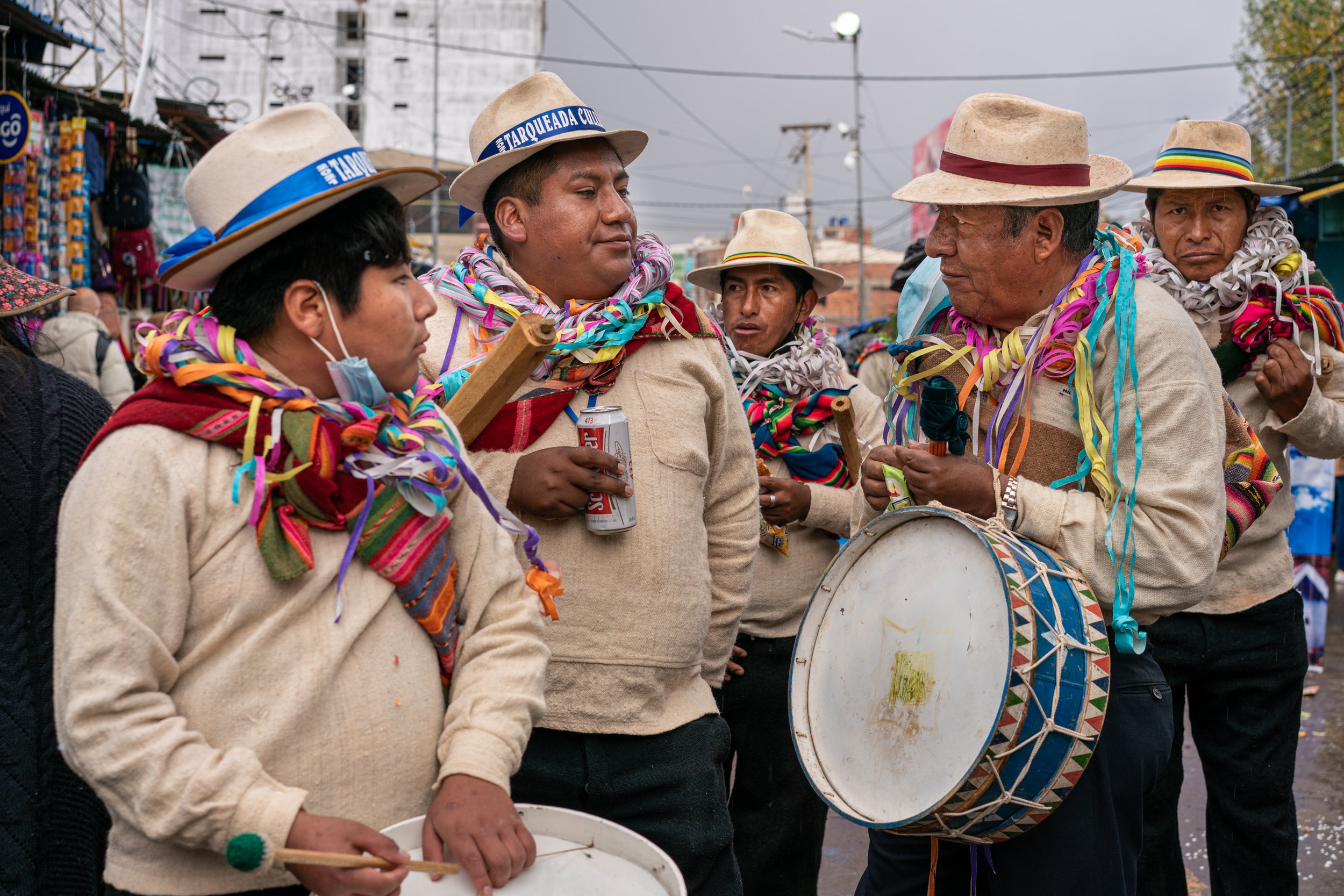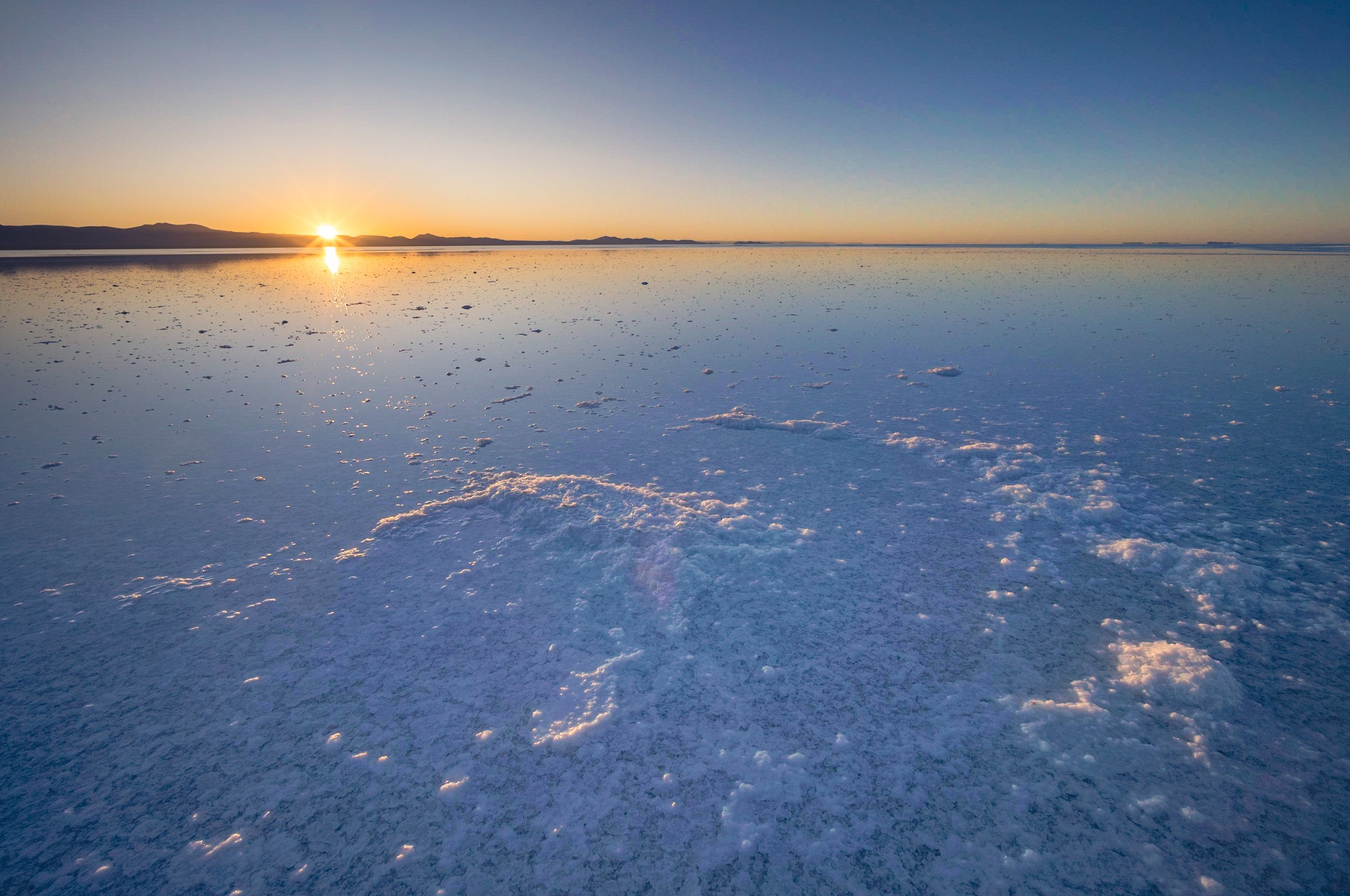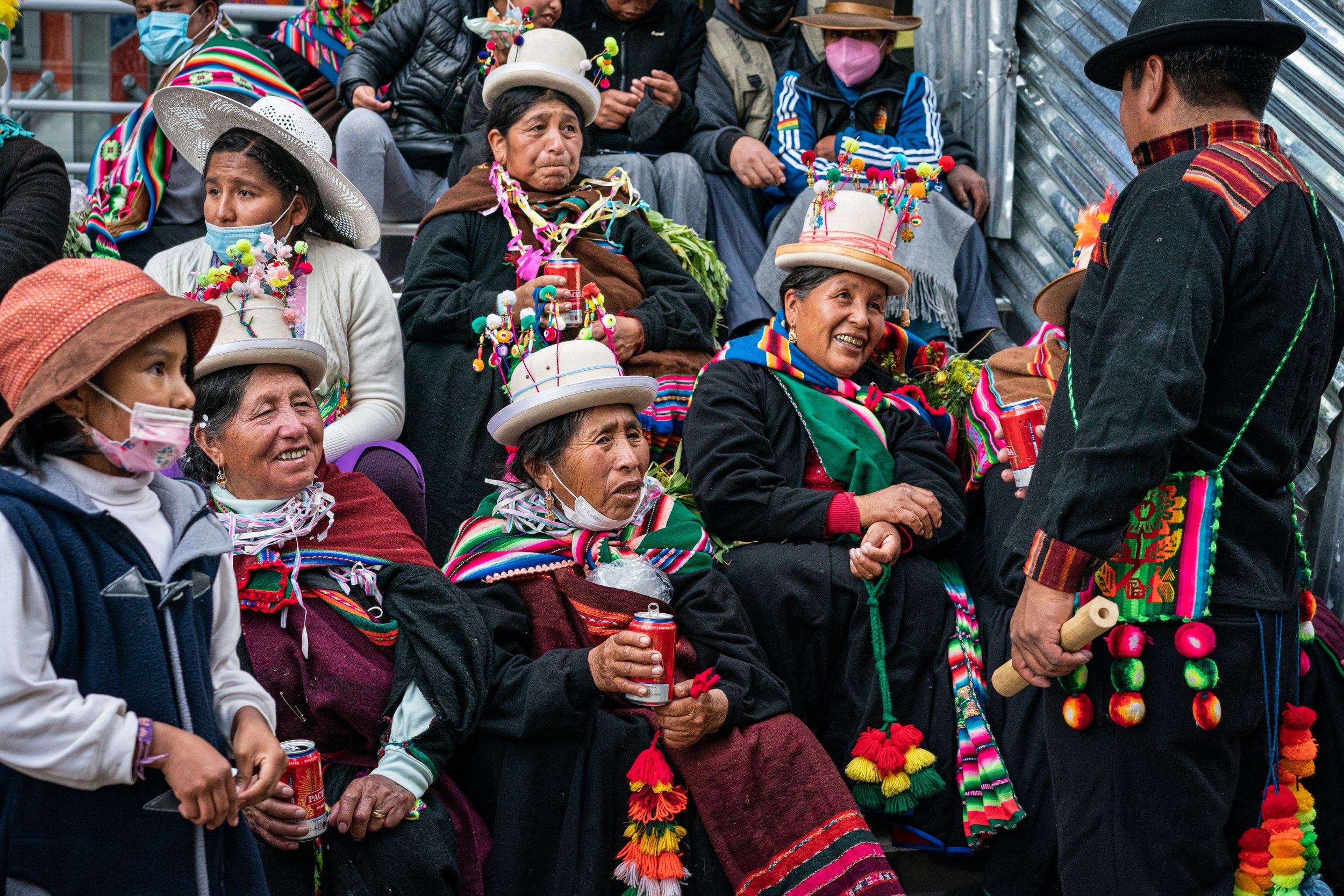Dancing Devils and Salt Flat Deserts - Bolivia Photography Tour: click here to book through our partners Light and Land!
We will meet in La Paz, the highest capital in the world, perched on a cliff at the end of the Bolivian plateau. From there we will travel together to the mining town of Oruro for the main events revolving around the Carnival.
Two days before the main Carnival parade, we will be photographing the Andean Anata, a non religious festival celebrated in Oruro since the pre-hispanic times for the blessing of the agricultural production. The communities and people of the surrounding areas parade through the streets of Oruro in their traditional garments, playing their own handmade traditional instruments and carrying their produce on the back with the Aguayo, the famous cloth used by the Cholitas, the renowned Bolivian women wearing large skirts (polleras) and bowler hats.
In these days we will also have an opportunity to visit and photograph some of the craftsmen and artisans making the spectacular masks and costumes for the dancers that we will see and photograph during the main Carnival parade, the Entrada.
The Oruro Carnival is one of the most suggestive and emotional in the world, 20 hours of exciting music and spectacular masks dancing through the streets of Oruro to reach the church where they will worship the Virgin of the Mine (Virgen del Socavón). It is a profound experience and a privilege to witness it. Oruro is a mining town and has been since it was founded in 1606. Its carnival is a blend of Christian and pagan traditions that date back to the 15th century. The main dance performed on the streets during the parade is the Diablada, a dance dedicated to the devil of the mines, el Tío Supay, that dates back 2000 years from the Uru civilisation. Today, it is a suggestive sight with the spectacular masks and costumes, all handmade by local craftsmen. In total, there are 18 different dances performed during the Entrada, the main parade, all unique and steeped in history. Two of the major ones, apart from the Diablada, are the Morenada and Flavio's personal favourite, the Tinku, originating from the Tinku fighting festival celebrated by some of the Quechua and Aymara communities on the Bolivian plateau.
After witnessing the Carnival we will travel to Uyuni and the largest salt flats in the world: we will be staying in a salt hotel, from where we will start a four-day tour of the most incredible otherworldly landscapes: the Rock Valley and the Lost Italy, the geysers Sol de Mañana, the most colourful lagoons, the Dalì and Siloli deserts, to conclude in the Salar de Uyuni salt flats. This is the rainy season and an inch of water covers large areas of the flats and reflects the sky like a mirror. It is a sight you will never forget.
We will be stopping to photograph at any time we like, sunsets, sunrises, the stars and the Milky Way.
The tour will finish back in the cities of La Paz and El Alto, the city that flourished on the plateau just above La Paz from the Aymara settlers coming from the surrounding areas. In El Alto we will see the Cholitas Luchadoras, the ladies wrestling in traditional clothes, a unique tradition cherished by the local community. In La Paz we will also visit the Witches’ Market, the Rodrigez and Uruguay markets, and the lunar landscape of the Moon Valley.
Join us for a unique and exclusive photographic experience that will yield images and memories to last you a lifetime!
This photography tour is unique and is an exclusive opportunity to witness and photograph a Unesco Heritage event that you will never forget.
All images by Flavio Bosi.












